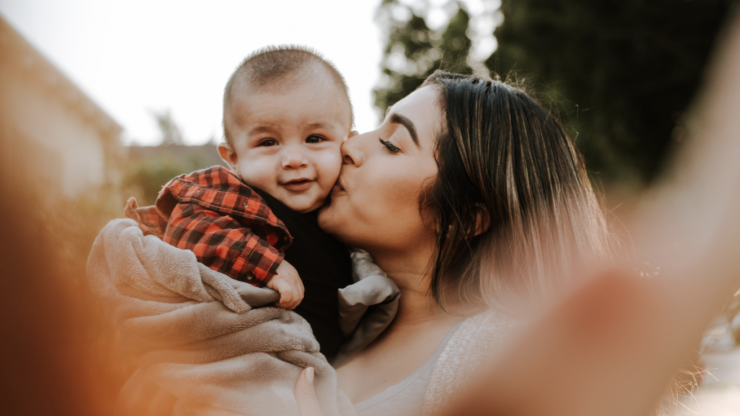Exploring Empathy in Mothers' Decisions to Call Child Protective Services
Jan 12, 2022 — Atlanta, GA

Assistant Professor Kelley Fong’s new article explores the role of empathy in low-income mothers’ decisions to call Child Protective Services (CPS). Fong, a faculty member in Georgia Tech’s School of History and Sociology, published “I Know How It Feels: Empathy and Reluctance to Mobilize Legal Authorities” in the journal Social Problems.
In her paper, Fong asks why low-income mothers hesitate to contact state services for children in their community — even when they suspect there might be child abuse or neglect. Her findings help reframe the conversation in a new way.
Challenging conceptions
Fong interviewed 74 low-income mothers in Providence, Rhode Island, over several years to conduct her research. Analyzing her interviews, Fong found that “respondents disavowed or expressed ambivalence about reporting other families to child protection authorities, often justifying their non-reporting by empathizing with mothers they might report,” she wrote in her abstract.
“Drawing on their own experiences of scrutinized and precarious motherhood, respondents imagined how they would feel if reported and balked at calling on child protective services, understanding reporting as an act of judging and jeopardizing another’s motherhood,” the abstract continued. “The findings challenge conceptions of non-reporting as necessarily indicating social disorganization. Rather, hesitation to mobilize authorities can constitute an expression of care, kinship, and solidarity.”
This reframes the issue in an important way. “A lot of academic research focuses on the deficits of marginalized communities — their weak networks, their social disorganization. But I heard a lot of expressions of kinship from moms, extended not just to their best friend, sister, or neighbor, but to hypothetical moms, people in their community that might be subjected to the same thing that they could imagine themselves being subjected to,” said Fong. “And that's really powerful. I think that's something that policymakers and others in power don't pay enough attention to: the real care that mothers in marginalized communities have for other mothers in similar positions.”
Leveraging care into policy
Leveraging this care could translate into actionable policy changes, Fong said. Rather than urging mothers to call CPS when they suspect a child is in danger, Fong’s research suggests there may be other, more effective interventions.
“I think that these findings require us to step back and ask: If moms don't see this option [CPS] as one that's appropriate, given their experiences and perspectives, what would be an appropriate intervention? And how can we strengthen and support those alternatives?” asked Fong. For example, peer support networks, disconnected from child removal, could provide an alternate resource for the women to reach out to with concerns with less trepidation that they may cause a family to be separated.
Further work in social inequality
Fong’s article in Social Problems is part of her larger body of research on social inequality, family life, and how families engage with state services in the United States. She often conducts interdisciplinary work with Assistant Professor Lindsey Bullinger in the School of Public Policy.
One of their recent papers reframed another question, looking at the bigger picture of not just how parents care for their children but the conditions under which they do so. Their research connected eviction filings to reports of child abuse and neglect, and suggested that reducing the former could also be an effective way to minimize the latter. Currently, Fong and Bullinger are working on a “Research to Action” grant from the Doris Duke Charitable Foundation, investigating how social services can best continue to provide virtual services to families and children in the post-pandemic world.
The School of History and Sociology aims to "Explore the Past, Engage the Present, Define the Future." Connect with us on Facebook, Twitter, LinkedIn, and Instagram to keep up with our students, school news, and upcoming events.
Di Minardi
di.minardi@gatech.edu




